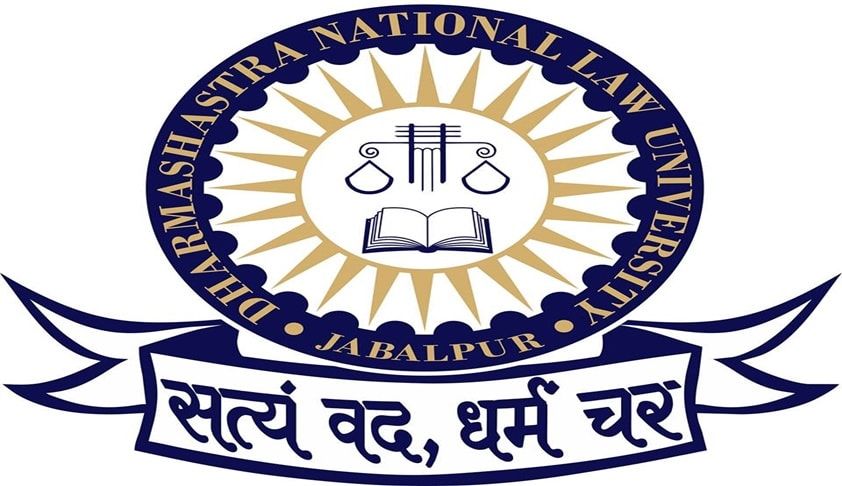Dharmashastra National Law University (DNLU) was established as the Madhya Pradesh National Law University Act 24 of 2018 with a vision to disseminate legal knowledge while also encouraging a research culture for the improvement and development of legal education.
The Centre for Law, Ethics and Biomedicine (CLEB) is established with an aim to bring multidisciplinary perspectives to bear on the legal and ethical issues of the day arising out of biomedical research and practice. The Centre endeavours to take up research projects and translate such research expertise and experience into valuable contributions to the medical, ethical and legal dialogue on multiple levels.
The Centre works collaboratively with legal academia, the key stakeholders in the healthcare sector, biomedical sciences and the policymakers. Apart from its mission to support policymakers in decision making and to produce legislative reviews, the Centre also aims to raise awareness among the general people.
The focal areas of this Research Centre are the areas where Biomedical Research and Practice intersects with Law and Ethics (bioethics). Advances in medical research, reproductive science, genetic research, etc. give rise to ethical and legal issues that are well known. The Centre is a platform for learning, teaching and research relating to ethical and legal aspects of healthcare and biomedical practices.
Call for Blogs
The Centre for Law, Ethics and Biomedicine invites contributions from Academicians, Legal and Medical Practitioners, Researchers and Students to its blog with an aim to publish blogs related to the field of Biomedical Research and Law. The Centre will try to accommodate all quality submissions after a double-blind peer review in order to create an open-access platform for the study of this specialised area of Biomedicine and Law.
This issue of the Blog is proposed on the theme “Biomedical Waste Management during the Pandemic”. We welcome submissions from interested authors on or before August 15th, 2021.
About the Theme
Theme: Biomedical Waste Management during the Pandemic
Covid-19 poses a challenge to the current society in different aspects. While our efforts have been concentrated on suppressing the spread of Covid, pushing the vaccination drive and ramping up our healthcare facilities, we must also recognize the immense stress put on biomedical waste management by the pandemic. Biomedical Waste (BMW) is defined as “any waste produced during the diagnosis, treatment or immunisation of human beings or animals or research activities”. One of the key problems currently faced around the globe is due to the huge volumes of waste produced, which includes medical as well as hazardous wastes, including infected masks, gloves and other protective equipment along with non-infected items. Added to this is the aspect of domestic waste management in the light of
Covid, as sanitation workers are forced to collect waste from quarantine homes thereby facing great health risks. Unsound medical waste management can have a serious impact on the health and environment of the country. Effective and appropriate identification, collection, separation, storage, transportation, treatment and disposal of waste is required in a scientific and environment-friendly way. With the outbreak of a global pandemic, the need to discuss biomedical waste management now is crucial than ever.
Sub-Themes
- Management of Biomedical Waste during COVID 19: Challenges and Solutions
- Implementation of Biomedical Waste Policy amidst SARS-COV-2 in India
- Unregulated Biomedical Waste: A Threat to Human Life and Environment
- Digitalization: A Panacea for Biomedical Waste Management?
- Biomedical Waste: A Risk to the World of Ragpickers
- Mass Vaccination: A Road Escalating towards Biomedical Waste
- Dumping of Biomedical Waste: Threat to the Marine Life.
- Legal and Technical solutions for post COVID -19 long term Management of Biomedical Wastes.
Submission Guidelines
- Co-authorship is allowed up to two authors.
- The author(s) should refrain from mentioning their name(s), institutional affiliation or any other detail of the author(s) in the document and the name of the document to facilitate the double-blind review process.
- The submission should be between 1500- 1800 words (inclusive of the endnotes/footnotes, if any). Longer pieces may be considered for publication only on the approval of the Editorial Team taking into consideration of the contents and
ensuring the quality. - All works must be original and unpublished. Any form of plagiarism will lead to disqualification for publication on the Blog.
- Keep your title brief and ensure that the title clearly communicates the topic and conveys the essence of the piece to the reader.
- While formatting the document, the author(s) should keep the following things in mind:
- Font style: Times New Roman, Font Size: 12, Headings: 14, Line spacing: 1.5.
- All the relevant authorities should be duly acknowledged and hyperlinked in the text of the submission itself. If hyperlinks are not available, then footnotes (Bluebook 20th edition) can be used. Further, if the author relies on a specific document to support an argument, pinpoint citations must be included.
- All submissions must be sent in a MS word document to cleb@mpdnlu.ac.in and no information of the authors to be specified in the manuscript and should be submitted in a separate word file.
- Submissions should be the original work of the contributor(s) and should not have been published or sent for publication elsewhere.
Review Process
- The review process is a two-stage Double-Blind Peer Review.
- The Editorial Board would look into various factors like the relevance of the submission to the theme of the Blog, accuracy of facts, depth of analysis, coherence in arguments and lastly, language and structure of the content.
Submission Deadline
All submissions must be sent via email on or before 15th August 2021.
Contact Information
All correspondences and queries related to the Blog may be addressed to cleb@mpdnlu.ac.in
Contact Numbers:
- Nitya Malviya: 8827544880
- Mohit Sone: 7049974948
Click here for CLEB’s official website.
 683
683

